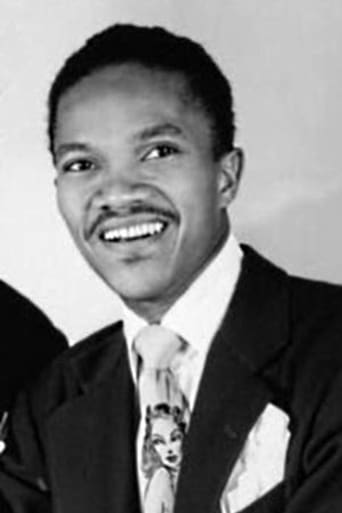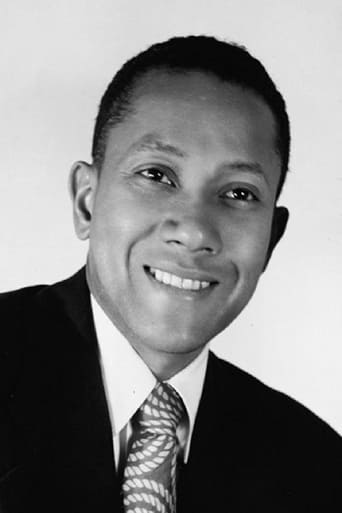Barber Shop Blues (1933)
A barber shop owner wins a sweepstake. He remodels his shop and hires Claude Hopkins and his orchestra to play for his customers. Two songs are sung, and the Four Step Brothers tap dance in the closing number.
Watch Trailer
Free Trial Channels
Cast


Reviews
SERIOUSLY. This is what the crap Hollywood still puts out?
Best movie ever!
If the ambition is to provide two hours of instantly forgettable, popcorn-munching escapism, it succeeds.
Your blood may run cold, but you now find yourself pinioned to the story.
The Nicholas Brothers were likely the best dancing team in history. Even Fred Astaire praised them for their insanely athletic and incredible dancing in "Stormy Weather", saying "this dance number was the greatest movie musical sequence I had ever seen". Because of their tremendous talent, I try to see them whenever I can...and that's more than enough reason to see "Barber Shop Blues"...even if they aren't in the film very long.The plot is simple. It begins in a humble barber shop and when the owner wins the lottery, he turns the place into a giant barbershop night club instead of on hookers and liquor (misplaced priorities if you ask me). What follows are the Nicholas Brother dancing and the Claude Hopkins Orchestra playing a VERY lively jazz song. All in all, a lot of fun!
Barber Shop Blues (1933) *** (out of 4) Nice short from Vitaphone/Warner is best remembered today due it featuring an all-black cast. Thankfully, Warner did turn out quite a few shorts aimed at black audiences and this here is a good example of that. Orlando Roberson does the tune "Trees" and we also get Claude Hopkins & Orchestra doing a few numbers including a very memorable version of "Careless Love." In between the musical acts we get The Four Step Brothers doing a nice little tap number and this here is clearly the highlight of the picture. At just 9-minutes, this is a very good and entertaining short that perfectly shows off what these acts could do if given a shot. I think most people are going to notice the low-budget nature of the film and while many might be impressed with the sets, I thought for the most part they were pretty standard and they certainly didn't look like the same level that we had seen from other Vitaphone pictures. The musical numbers are all fairly impressive even if none of them really jump out at you. I think fans of the music from this era are the ones who are really going to eat this up but overall the short is certainly worth viewing.
You've got to hand it to Warner Brothers. Try to think of another studio that would routinely produce all-black shorts during the Depression. This kind of product was routinely banned from many southern theaters which couldn't help the studio's lousy bottom line (1934 was the 4th year WB was bleeding red ink with a loss of over $2.5 million for the year and a staggering $30.0+ million loss since 1931). Still, the studio kept it's Astoria, NY Vitaphone studios busy cranking out musical shorts--- mostly directed by reliable Joe Henaberry. Barber Shop Blues is notable for the incredibly elaborate set design and Claude Hopkins' Orchestra. Songs include an abbreviated version of "I Want a Shave (and a Haircut Too)" and a rendition of Joyce Kilmer's "Trees," which to my tin ear sounds a lot like the Ink Spots. Then there's the near obligatory tap sequence with the Four Step Brothers. Oddly the short is all-male. The real star is the large barber shop set, which belies the minuscule budget and probable 2-day shooting schedule. If you want to see a fantastic example of Henaberry's directorial work, see Public Jitterbug No. 1 (1939) featuring an incredibly frenetic Betty Hutton.
I've been collecting black film shorts for years, and this is one of my favorites. This film shorts stars Claude Hopkins and his Orchestra with Orlando Roberson, and the Four Step Brothers. Great Entertainment, If you can find it, you'll love it. Film Shorts were the only way Black Entertainment could be shown with class, showing fashions, the slang, the dances, the songs, showing the top groups. You'll treasure these when you find it.







